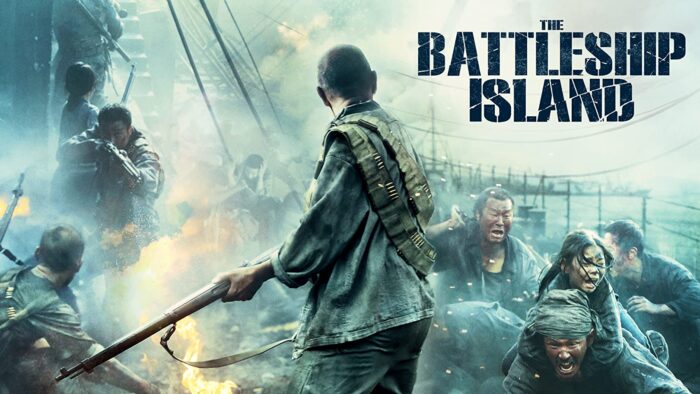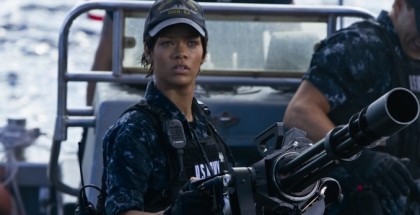VOD film review: The Battleship Island
Review Overview
Brutality
6Scale
8David Farnor | On 23, Apr 2022
Director: Ryoo Seung-wan
Cast: Hwang Jung-min, So Ji-sub, Song Joong-ki, Lee Jung-hyun, Kim Su-an
Certificate: 15
If Escape from Mogadishu‘s blend of real-life politics and action-packed thrills caught your attention, then director Ryoo Seung-wan’s 2017 blockbuster The Battleship Island should also be on your watchlist. The fictionalised film is rooted in the forced conscription of Koreans during World War II, during Japan’s occupation of Korea. Our window into that dark time are a father-daughter duo, Lee Kang-ok (an engaging Hwang Jung-min) and Lee So-hee (a superbly resilient Kim Su-an), who make ends meet as part of a jazz band – she sings and dances, while he plays and doesn’t miss a chance to grift his way to some money.
All that changes when World War II breaks out and the pair head to Nagasaki in an attempt to curry favour with Japanese officials. But they find themselves instead at a labour camp on Hashima Island, where hundreds of Koreans are forced into mining on the island known as “Battleship Island”.
The extremely harsh conditions are depicted by Ryoo Seung-wan with a vivid brutality – often too much so, especially when it comes to some violent moments and scenes in which women are forced into prostitution. But if that makes this an occasionally unpleasant watch, the film is more successfully at capturing the heartbreaking separation that many Koreans faced, as represented by the splitting up of Lee and So-hee. Reuniting them and getting her to safety is the main drive of the con artist father, which humanises him in a way that another film wouldn’t.
Such primal, survival instincts help to unite the Korean captives on the island, with one political prisoner leading a resistance that is quietly plotting an escape attempt. Lee inevitably inserts himself into the plan, positioning himself as a middle-man through trading contraband and information. That means we’re in the thick of the action when the final act arrives and, although it involves a departure from historical events, there’s no denying the visually stunning feat of staging the enormous flight for freedom. Concerns about the film’s treatment of history are lost in the intensity of its portrait of one nation’s trauma, which is movingly upended through its evocative uprising – accompanied, stirringly, by The Ecstasy of Gold by Ennio Morricone.

















